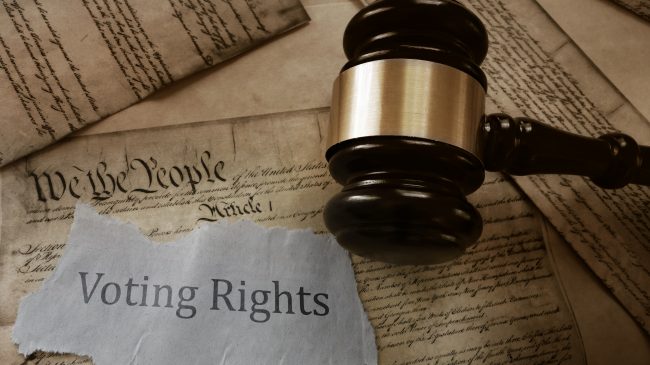Summary
Amendment 4 would automatically restore the right of felons, except for those convicted of murder or sexual offenses, to vote upon completion of their prison sentence, parole, and/or probation.
Fiscal Impact
We estimate little to no fiscal impact.
Proponents’ Argument For
Proponents argue the modern legal and cultural norm is that felons should have their voting rights restored once they have served their criminal penalty to society. Florida remains just one of four states that denies this right to all felons. In such a populous state as Florida, that means roughly 1.6 million people are permanently excluded from voting.
It is also a problem that the current system by which those who served their terms can then apply to restore their voting rights serves only a trickle of individuals, and only after long delays.
Proponents argue that it does not further justice or rehabilitation to continue to punish felons after they serve their debt to society by denying them the right to vote.
Opponents’ Argument Against
Opponents argue that this measure is too broad in that it restores the rights of most felons without the opportunity to make case-by-case arbitrations. They contend that the current system is better because felons can still have their right to vote restored, it just isn’t done automatically. The state reviews each case and then decides whether or not to restore the right to vote based on the individual’s criminal history and post-release details. They argue that with Amendment 4, all felony offenses except murder and sexual offenses are classified the same, and all felons under those other categories, regardless of how dangerous or mentally unstable they are, would have their right to vote automatically restored when they are released. This could cause dangerous and destabilizing effects on society.
Discussion
Florida is far behind the curve when it comes to felony voting policy and it affects a significant number of people. Florida is just one of four states that do not automatically restore voting rights to felons once they have completed their punishment. It is estimated that the 1.6 million non-voting felons in Florida represent over 10 percent of the entire disenfranchised voting population in the United States.
Considering all the details of every felon who has done his or her time in order to restore their voting rights is a long, expensive and unfair process that many never see the end of.
Felons serve their debt to society when they lose their rights and freedoms inside of a prison cell or under the watch of a probation officer. Most other states and places have recognized that this serves as sufficient punishment for the crime. It serves no societal purpose, indeed it makes rehabilitation and recidivism reduction more difficult, to continue to punish these persons for the rest of their lives by denying their right to vote. In fact, the hope is that the correctional system is a way for those who have made poor decisions to turn their lives around and once again become positive members of a democratic society. Treating people who have served their time as responsible adults is a crucial part of rehabilitation and can help with the process of feeling and acting like responsible adults. Voting is one more way to do that.
Voters’ Guide to the 2018 Florida Ballot Amendments
The Voters’ Guide examines the proposed amendments to the Florida Constitution that are on the Nov. 6, 2018, ballot.
